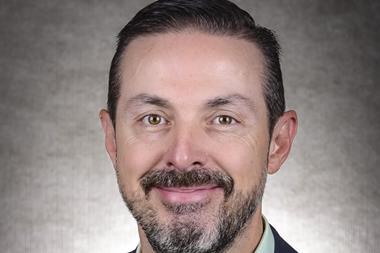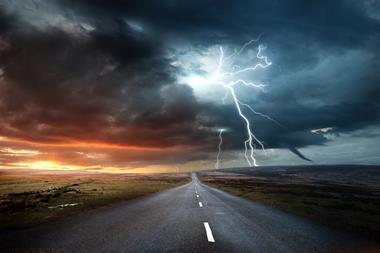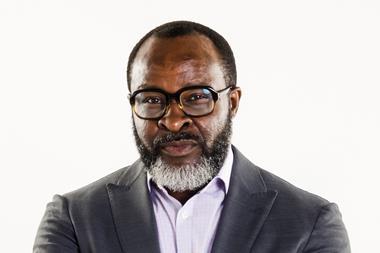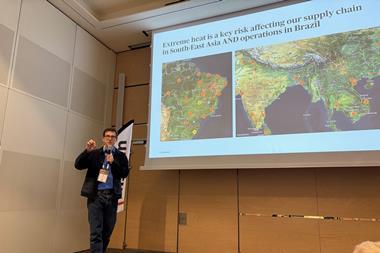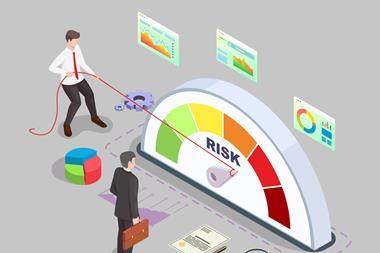Despite a number of potential losses which could top $1 billion, the group only buys insurance that is required for statutory or contractual reasons. Commercial insurance is not seen as an economic means of financing losses. Says Chris Perrott: "We cannot see the point of transferring risk to a company that is smaller than we are and whose balance sheet is less strong,"
The group is BP which about ten years ago in the previous hard market examined the effect of insurable losses on shareholder value, took a deep breath and eliminated as much as possible its purchase of external insurance.
Perrott is its insurance manager - for the group does still buy insurance and it has a captive, Jupiter in Guernsey, which allows the company to reinsure risks that have to go into the commercial market.
He says the reasons for the decision have not changed:
- BP has a good loss record
- It is very strong financially with a very large balance sheet that can absorb the cost of any event
- It has a very diversified portfolio with many risks that are completely uncorrelated.
BP's decision to look at its purchase of insurance in the context of shareholders' long term interests was unusual and contributed to the groundswell of demand for more attention to shareholder value that underpinned the Turnbull Committee recommendations and the combined code on corporate governance.
Insurable or fortuitous risk is for BP simply part of the total risk picture of the group that needs to be identified and managed. The policy over insurance has become so unremarkable the disclosure is confined to a brief statement in the "Contingent liabilities" section of the annual report. It adds that losses are borne as they arise rather than spread over time through payment of insurance premiums with the associated transactions costs, and that the position is reviewed periodically.
Major energy companies carry substantial amounts of their own risk but none has gone quite as far as BP. According to Tim Fillingham, chairman of the energy division of broker Aon in London, the amount of insurance that other energy companies buy varies from reasonably extensive programmes to major, catastrophe-only protection. Deductibles for the largest may run into hundreds of millions of dollars.
"The past hard market meant that many companies were looking to industry mutuals, such as Oil and Synergy, or captives. There has been a big increase in captives. Most of our major clients have or are about to set up a captive, even in the more esoteric territories where the concept is less common, there is a big growth in interest," he says.
Simon Boxall, a managing director in the Marine & Energy practice at Marsh, suggests that external insurance continues to have a value even to very large energy companies. "There are those who have a view that insurance is a benefit in terms of risk management and not just risk transfer, that insurance helps to lend discipline to the risk management process."
No trade off
In his letter to shareholders in the 2002 annual report, BP chairman Peter Sutherland wrote: "A particularly important task of the board is to monitor the way the company manages its approach to opportunities and risks, which may be operational, financial, environmental or ethical. This monitoring includes an annual review of the full range of possible risks, a review that shapes our continuing assessments."In terms of specific risks, BP places great emphasis on its environmental and social performance and includes a separate section in its annual report.
It says: "Our five business policies guide our actions. These cover health, safety and environment, employees, relationships, ethical conduct and finance. They inform every decision made by every employee. Each individual in the company is required to comply; our partners, suppliers and contracts are encouraged to adopt them. We believe there is no trade-off between high standards and high performance."
BP is not loss free, but it is unusually open about its performance in safety and environmental management. For example, the 2002 annual report notes with regret that during the year three employees and ten contractors were killed at work. However, this was a reduction from the previous year and there has been a steady, long term reduction in the number of days lost through injury, for which figures are given.
The company uses the additional space available on its web site to disclose more information. This is an example from the section on business ethics, corruption: "Some oil product sales in Vietnam involved inappropriate commission payments to the managers of customers in return for placing orders with BP. These were stopped during 2002 with the result that BP failed to win certain tenders with potential profit totalling $300k. In addition, two sales managers resigned over the issue. The business, however, has recovered using more traditional sales methods and has exceeded its targets at year end."
Business managers' contracts make them accountable for managing the social and environmental impact of the business and contain specific objectives and firm deadlines for delivery during the year, according to the report.
Stock market reaction
Mike Regester of consultants Regester Larkin has extensive experience advising energy companies on crisis and reputation management. He comments: "Most oil companies are paying greater attention to operating in a way which supports sustainable development. They genuinely, in our experience, work hard at integrating health, safety, environment and community responsibilities to the way they do business. Profits with principle is the mission."In our view, this is essential as stakeholders other than, for the most part, investors, scrutinise them for the manner in which they behave. Stakeholder perceptions of a failure to behave appropriately can lead to action, by non-governmental organisations (NGOs) for instance, to try and prevent companies from achieving their commercial objectives."
Certainly, the stock market did not react strongly when three potentially dangerous incidents occurred within a few days in May and June 2000 at BP Grangemouth operations in Scotland, and as a result, BP was fined £1m in January 2002 for health and safety offences.
Alistair McNab, principal inspector with the Health and Safety Executive (HSE), who led the investigation into the incidents said: "Only good fortune avoided fatalities and serious injuries." He did, however, add: "HSE has been carefully monitoring the actions BP has taken since these incidents and I can confirm that substantial progress has been made, including improved plant reliability and pipe work and steam maintenance."
Jon Rigby, energy analyst with Commerzbank in London, explains that in terms of external factors, the primary drivers of share price for all energy companies are movements in the price of the basic commodities, crude oil and natural gas, and the international value of the dollar.
For internal factors, the paramount issues are the allocation of capital to projects and the execution of those projects: whether senior management has identified correctly where to deploy capital to maximise returns, and whether those projects have been delivered on time and to budget.
Investors, he says, do pay attention to perceptions of the way a company conducts its business. "The principal risk they all face is reputation, because a lot of the share performance is perception. There are discounts and premiums away from a middle ground of fair value."
In the context of insurable losses, he says: "I do not think there is a single event that by itself could result in damage to an oil major but the secondary and tertiary effects - how quickly they react and the measures they adopt - can do so."
NGOs do not see a company like BP in the same light as investors. As we went to press, the WWF (formerly the World Wildlife Fund) and other environmental groups, were fighting proposals by an international consortium headed by BP to build a 1700 KM pipeline to convey Caspian crude oil from Baku in Azerbaijan to Ceyhan on the Turkish coast of the Mediterranean.
WWF believes that the pipeline poses unacceptable risks to the human and natural environment of the region and "that these have not been adequately considered or addressed." James Leaton, extractive industries policy officer for the WWF, believes that although it will pass through seismically active areas, BP has not been forthcoming about measures to manage the risk of rupture to the pipeline and hence an oil spill in an earthquake. "They have given us very general assurances," says Leaton, "but nothing specific enough for us to be able to say with any certainty that in these key areas there is not going to be a spill."
In the US, BP was also coming under pressure after Alaska's pollution regulator warned that the UK oil and gas company mishandled oil spills in the state while under probation for failing to report immediately an incident in 2000. In December 2003, the Alaska Oil and Gas Conservation Commission said it would fine BP $2.53m, its biggest-ever penalty, for lax monitoring that caused an explosion last year.
BP's stated policies, its annual report and the extensive disclosure on its web site indicate a company which is genuinely trying to conduct business ethically and achieve a goal of "no accidents, no harm to people, no damage to the environment." Its standards have improved, the HSE specifically noted BP's openness and cooperation in its response to the Grangemouth incidents and in the preparation of the HSE's report, and in 2002, the chief executive of the WWF, Robert Napier, spoke of "a generally constructive relationship between the two organisations" at the annual general meeting in 2002.
It seems, however, that public tolerance of workplace injuries and environmental pollution has thinned and expectations of corporate behaviour, especially by big business, have risen. Since then, however, the WWF says that dialogue has become less constructive. An advert it placed in the Financial Times stated: "It seems to WWF that there is a wide gulf between BP's Corporate Social Responsibility rhetoric and the reality of the Baku-Tbilisi-Ceyhan (BTC) pipeline."
Having declared a commitment to health, safety and environment, employees, relationships, ethical conduct and finance, BP will find itself under constant scrutiny, as the current cases demonstrate. It may feel itself under pressure to do more than others with less commitment to sustain the reputation it has been at pains and expense to create. James Leaton comments: "The wider the gap between BP's policies and its performance on the ground, the greater the risks the company faces." Risk management will remain crucial to protect shareholder value, even if insurance is not.






